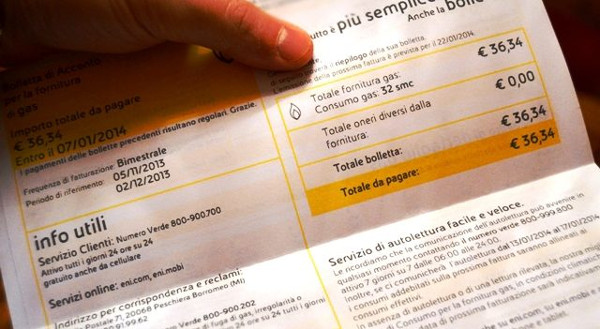How to avoid the maxi cost of bills? Ideas and proposals

From January, electricity and gas bills will rise again. Here's what the government is doing and what the regulators (Arera) and experts (Clò and Tabarelli) suggest
After the rise in prices softened by the government in the last two quarters of 2021, electricity and natural gas bills could increase further from January to March next year. The forecasts – the real numbers should arrive shortly – say that gas will grow by 50 percent, while that of light will grow between about 17 and 25 percent.
WHAT THE GOVERNMENT IS DOING
According to the calculations of the Sole 24 Ore , the government has so far allocated 3.8 billion euros against the expensive bills.
From a substantive point of view, it seems that the government will re-propose the approach already used in recent months: that is, limiting the impact of price increases on the most vulnerable groups of the population, perhaps by expanding the audience of recipients (based on income) through an ad hoc fund. . However, there is the problem of energy-intensive industries, that is, those that use large quantities of energy for their production activities, whose activities would be heavily damaged by the high prices of electricity and gas.
In addition to these short-term measures (of economic aid to social groups and, possibly, to the economic sectors most in difficulty), the government – writes Il Sole 24 Ore – is also thinking of a long-term, structural solution, which could consist of in a reform of the bill itself, and specifically of the system charges item.
WHAT BESSEGHINI (ARERA) SAID
Speaking to Rainews 24 , the president of ARERA (Regulatory Authority for Energy, Networks and the Environment) Stefano Besseghini said that to limit the economic impact of the increase in energy prices in the first quarter of 2022, a "reply of the interventions ”already carried out by the government in recent months. However, the measure will have a "very significant" cost but will have to be financed "adequately, especially for the most vulnerable families".
WHAT TO DO? THE OPINION OF CLÒ
Alberto Clò, director of Rivista Energia , thinks that the crisis in energy prices – mainly due to the increase in the cost of natural gas, also used to generate electricity – could be resolved once the cold season is over, "but the risk is that it will be found as it is in the autumn of next year ".
For this reason, according to the economist Clò, it would be preferable to "intervene on the causes of the problem", reducing exposure to the more volatile spot gas market (the one that provides for an immediate sale), and instead focusing on long-term contracts, where prices are clearly defined. "In essence," the analyst summarizes, "a more balanced pricing system for end consumers, which through links to new long-term contracts, reduces the volatility of consumer prices and avoids, in shortage periods such as current – which could however become structural – to pay absurdly high prices.
THE OPINION OF TABARELLI (NOMISM)
Tabarelli, economist and president of Nomisma Energia, told the press that the 3.8 billion allocated by the government are insufficient: "there will be slightly less strong increases, but still unsustainable for thousands of Italian families and businesses".
Tabarelli proposes to “return to administered tariffs, that is, established by the public authorities. But in Rome and Brussels they say that what we are witnessing is a normal manifestation of the free market, and that everything will be adjusted automatically ”.
According to the economist, the market "is producing irrational prices": the shortage of gas has to do with it, both because Russia (especially in the past months) has limited flows, and because the Asian market (given the higher prices and therefore also the profit margins for exporters) has attracted shipments of LNG that would otherwise have reached Europe. Tabarelli speaks of a "modest gas shortage", which can be solved with the construction of new regasifiers and with the opening of the Nord Stream 2 gas pipeline between Russia and Germany, which however violates European rules and is considered a geopolitical weapon by the United States which will allow Moscow to increase its influence on Europe.
DO LIKE SPAIN?
Also Tabarelli, but in Milano Finanza , said that it would be desirable, by the Draghi government, a measure similar to that decided in Spain: the executive of Pedro Sanchez has decided to draw on the profits of the energy companies, judged excessive, to obtain resources to be allocated to contain energy costs for citizens and businesses, by imposing a maximum limit on natural gas prices and lowering the electricity tax.
Tabarelli thinks that renewable sources are not "the solution" both because their full affirmation is far away, and because "they are not enough, I find it absurd that they are still the subject of incentives".
"Much better to put the coal plants back into operation", concludes the economist, "than to wait for the green miracle without doing anything".
This is a machine translation from Italian language of a post published on Start Magazine at the URL https://www.startmag.it/energia/rincaro-bollette-gennaio-2022-cosa-fare/ on Mon, 13 Dec 2021 14:50:10 +0000.
